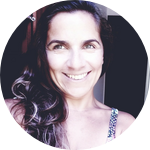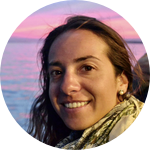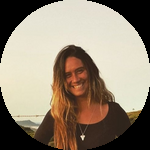Project Results
https://drive.google.com/file/...We are happy to share the result of microplastic monitoring after three months of sample work, pilot microplastic monitoring. Acquiring information on abundance, occurrence and distribution over 170 km, in addition to seasonal accumulation patterns and the most common types, as well as some important indicators of marine pollution along the coast of Santa Catarina.
About This Project
The coast of Santa Catarina represents 7% of the Brazilian coast and contains 6 areas relevant to conservation. Currently, we do not know the occurrence, distribution and abundance of microplastics in most of the beaches of this coast. The project aims to train a network of citizen scientists for unified microplastic monitoring, collecting different types in an area of 25 meters over 3 months and analyzing this information, creating a baseline for regulating plastic use in conservation areas.
Ask the Scientists
Join The DiscussionWhat is the context of this research?
Single-use products have become a day to day habit and plastic is embedded in every minute of our lives, including before birth. According to a preliminary census of marine litter, about 8 million tons of plastic are released every year into rivers and seas, with the majority being produced by very populated nations, such as Brazil and China. Microplastics, for instance, may be invisible to distracted people, however, anyone that takes a closer look will see these tiny pieces of plastic everywhere near the ocean (according to a study about the worldwide distribution of microplastics). See examples of negative effects of microplastics on zooplankton, fishes, whales, and humans.
What is the significance of this project?
We understand that replication of a unified methodology for collecting marine pollution data is a gap raised by the high-level discussions of the Oceans Decade. A network trained with a unified and adapted methodology has the potential to collect data on plastic pollution and keep the community engaged through direct actions to clean the microplastic beaches. The creation of environmental indicators and data brings the community closer to managers for the creation of public policies that regulate the use of plastic in conservation areas.
In-depth analysis can point to the sources and types of microplastics, expanding discussions on waste management in the islands and the coastal zone of southern brazil.
What are the goals of the project?
The project aims to create a network of citizen scientists engaging stakeholders and the community in monitoring microplastic pollution and plastic waste, using low-cost infrastructure and easy-to-replicate methodology to acquire high-quality standardized data on different marine sites in Brazil.
Building a local and regional database of marine litter to be further analyzed and converted into marine pollution indicators of multiple uses in decision-making.
Identify the temporal and spatial variation of pollution,
Assessing environmental and social factors and guiding change in consumer behavior.
Budget
Currently, the project is recognized as an Official Action of the Decade of the Oceans by Unesco, but we intend for the project to become a Program and the protocol to be implemented in long-term monitoring. Network training (training) is an important key to ensure that the data collected is of good quality and the products delivered are reliable. At least 2 Cape Verde islands are already using the methodology beyond the beaches of Santa Catarina Island (BRA) in this way, the expansion of the network and income generation for local communities through monitoring, generates commitment to the results (fellowship). The project's opportunity to acquire a prototype for cleaning microplastics from the beach is really very important, as well as all the work spent on analysis. We are fully committed to the development work.
Each team will receive a work kit, with collection materials and a T-shirt
An extra day of training was arranged with an extra team.
Endorsed by
 Project Timeline
Project Timeline
The project needs at least a 3-month data acquisition pilot. The communication plan for the alert and preservation campaign take up to 20 days [between formulation and dissemination] to be disclosed among the chosen municipalities. Within the 30 days foreseen [1 week will be for training the monitors by region, the collection will be every fortnight]. The report will be presented to the decision makers. The construction of the prototype depends on the manufacturer's time.
Feb 08, 2023
Project Launched
Mar 15, 2023
Communication Plan
Mar 30, 2023
Training
May 20, 2023
Prototype Construction
Jun 30, 2023
Monitoring
Meet the Team
Ana Carolina moreira de oliveira
Environmental manager, educator, and researcher focused on marine pollution and microplastics, with a particular interest in the role of mangroves as natural barriers and filters. Works at the intersection of science, environmental education, and community engagement, developing projects that connect applied research, ocean conservation, and ocean literacy through inclusive and nature-based approaches.
Project Backers
- 4Backers
- 100%Funded
- $1,376Total Donations
- $344.00Average Donation


